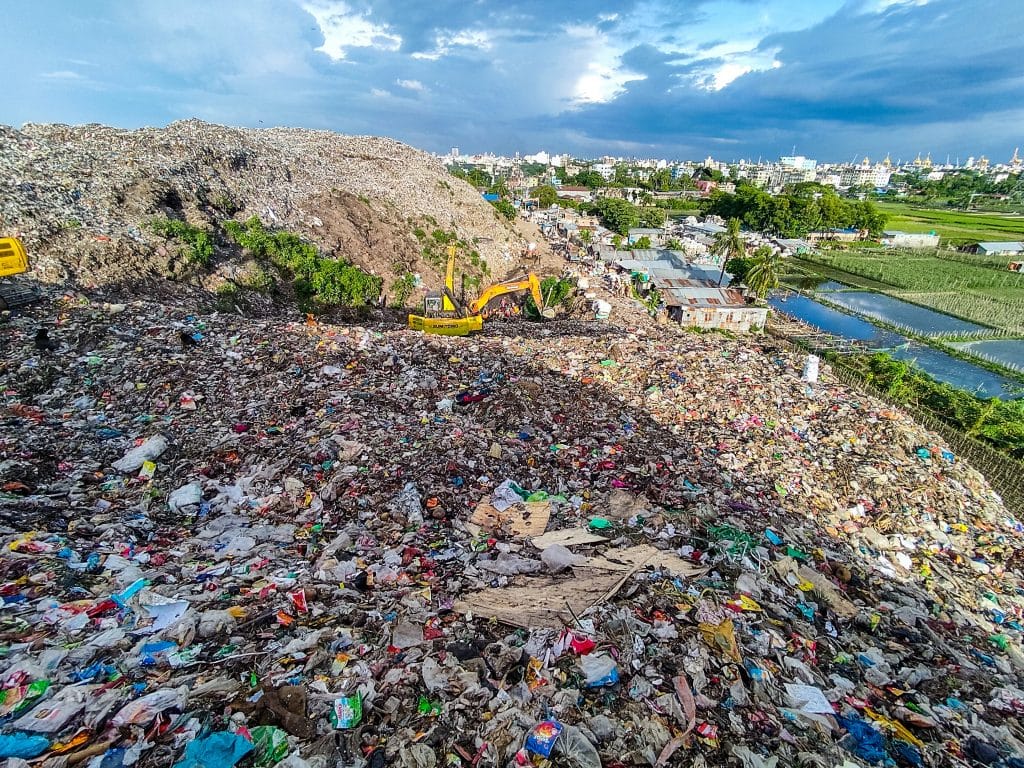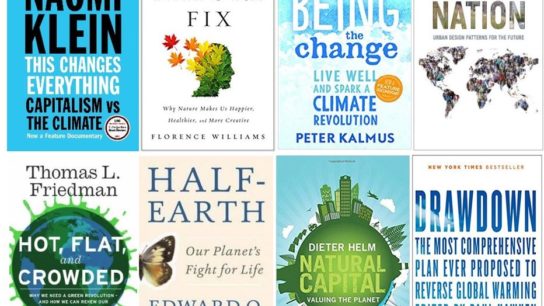Waste pollution is one of the biggest environmental challenges of our lifetime. Fortunately, some innovative businesses have developed solutions to tackle waste and improve waste management in creative ways. These companies are proving that waste can, in some cases, be turned into a valuable resource.
—
The Need for More Sustainable Businesses
As global waste continues to accumulate, we urgently need more businesses to incorporate sustainability into their models and help reduce waste. According to the World Bank, annual waste generation is projected to increase 70% by 2050 unless significant action is taken, and businesses have a crucial role to play in tackling this crisis.
First, more sustainable businesses are needed to help create a circular economy that eliminates waste and keeps resources in use. By redesigning products, using recycled materials, repairing and resusing, and finding new applications for by-products, companies can shift away from the traditional linear economy where materials quickly become waste. Circular models are essential to reducing humanity’s massive waste footprint.
Additionally, entrepreneurs and innovators are needed to spark new ideas and technologies that make sustainability affordable and accessible. Implementing waste solutions often requires new processes, materials, and thinking that existing businesses may be slow to adopt. Forward-thinking startups can rapidly develop and spread innovative systems to combat waste.
With smart strategies and innovation, businesses can drive progress in solving the urgent waste crisis. The growth of environmentally responsible, waste-tackling companies will benefit the environment while creating new economic opportunities. The time has come for businesses big and small to be leaders in building a zero-waste future.
You might also like: 4 Smart Waste Management Solutions That Are Revolutionising the Industry
1. Elvis & Kresse
Elvis & Kresse is a sustainable luxury brand founded in 2005 by Kresse Wesling and James Henrit. The business was started with the goal of reclaiming and reusing materials that would otherwise end up in landfills. They produce bags, belts and other accessories made from decommissioned fire hoses that the London Fire Brigade could no longer use and were going to discard. Kresse and James saw the beauty and potential in these fire hoses and sought to rescue them. They established Elvis & Kresse to reclaim these materials and turn them into high-quality and fashionable products.
Today, Elvis & Kresse uses reclaimed materials in all of their products, including fire hoses, printing blankets, leather offcuts, parachute silk, military-grade tents and more. With sustainability and social impact at the core of the brand, Elvis & Kresse donates to various charities, including The Fire Fighters Charity and Barefoot College International. Through cutting-edge design and a dedication to reclaiming materials, Elvis & Kresse proves that high-end, eco-friendly fashion is possible. They have turned waste materials into desirable, luxury products that do good for the environment and communities.
You might also like: How Repairing Clothes Slows Down Climate Change
2. Shaku
Shaku is a London-based luxury brand that produces high-quality scarves and accessories featuring original artwork and designs. The brand was established when its founder had the idea to create a collection of scarves that were like wearable works of art. Shaku scarves are synonymous with timeless design, traditional craftsmanship and modern style.
The brand is aligned with the slow fashion movement, focusing on high-quality pieces that are meant to last for generations rather than single seasons. Their sophisticated designs appeal to all ages and are intended to become heirlooms, not short-lived trendy pieces. What’s more, waste materials and faulty pieces are given a new lease of life as accessories and homeware items, so they’re not wasted. They transcend fleeting fashion and seasonal changes, designed to be loved and worn for years to come.
3. Honest Ocean
Honest Ocean was founded by Tom Jackson and Angus Fleming with the goal of reducing plastic waste in Indonesia and other parts of South East Asia. During their travels, they experienced firsthand how poor infrastructure and large volumes of imported plastic waste were contributing to massive amounts of pollution in the region, especially in the ocean. They started Honest Ocean to help create a sustainable solution to this problem.
Their model involves collecting plastic waste, sorting and recycling it, and then selling it to manufacturers who use recycled plastics in their products. This helps to keep plastics in the economy and out of the ocean. In addition to building infrastructure and supply chains, Honest Ocean works to educate and empower local communities on waste management and reduction. By organising beach cleanups and teaching people about the harm of plastics, especially single-use plastics, Honest Ocean is helping communities become more eco-friendly and self-sufficient in combating pollution.
4. Piñatex
Piñatex is an innovative and sustainable textile made from pineapple leaf fibres, a waste product from pineapple harvests. It was created by Dr Carmen Hijosa who was inspired to develop a commercially-viable and environmentally-friendly textile alternative. The process of creating Piñatex involves several steps:
- Harvesting Pineapple Leaves: After pineapples are harvested, the leaves are collected.
- Extracting Fibres: The long fibres are extracted using semi-automatic machines.
- Drying: These are sun-dried or dried in ovens.
- Purification: The fibres are purified to remove impurities.
- Combining with Bioplastic: The resulting pineapple leaf fibre (PALF) is combined with polylactic acid (PLA), a bioplastic, to create a non-woven mesh called Piñafelt.
By using an agricultural waste product, Piñatex provides economic opportunities for pineapple farming communities and an additional income stream with minimal environmental impact. This material has been used by over 1,000 fashion and interior brands worldwide, including luxury and high street retailers. Its versatility makes it suitable for clothing, accessories, upholstery and more. Through innovation, Piñatex proves that sustainable textiles can be commercially viable while benefiting people and the planet.
Final Thoughts
These companies demonstrate that with creativity and commitment, businesses can be powerful forces for reducing waste. They have built their brands around reclaiming and repurposing materials that would otherwise end up as waste, and their success stories prove that innovative business models can indeed turn waste into value. What we have seen with these businesses is that sustainability and profitability can go hand-in-hand. Through smart design, efficient processes and creating high-quality products, they have made waste-tackling approaches financially viable and scalable.
Featured image by EO Photographer Rayhan Ahmed.
More on this topic: How Waste Management in Germany is Changing the Game


















